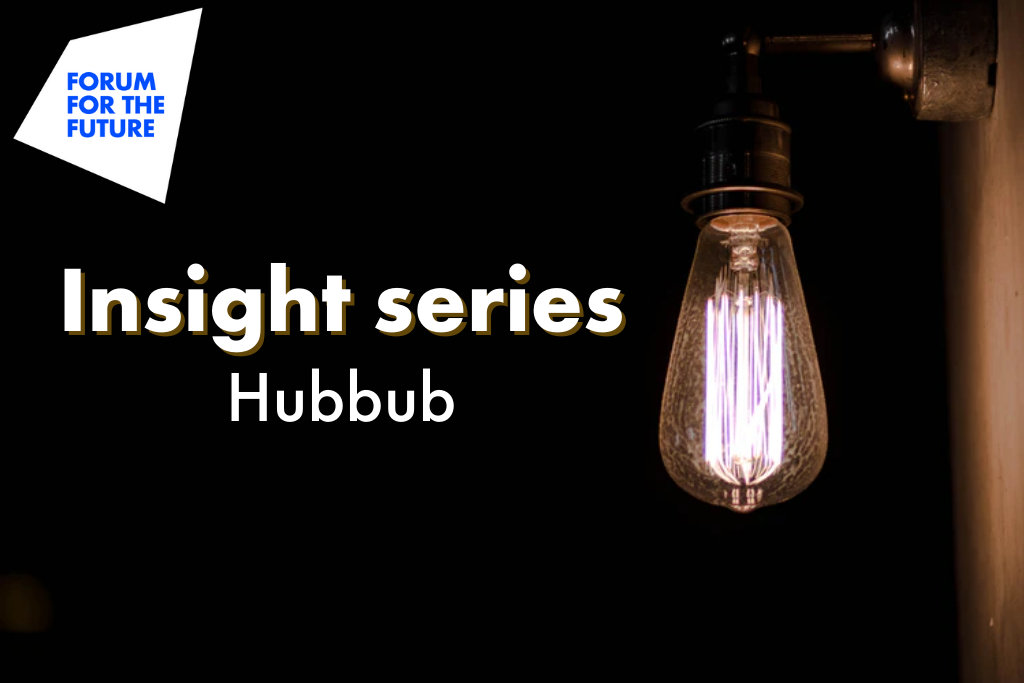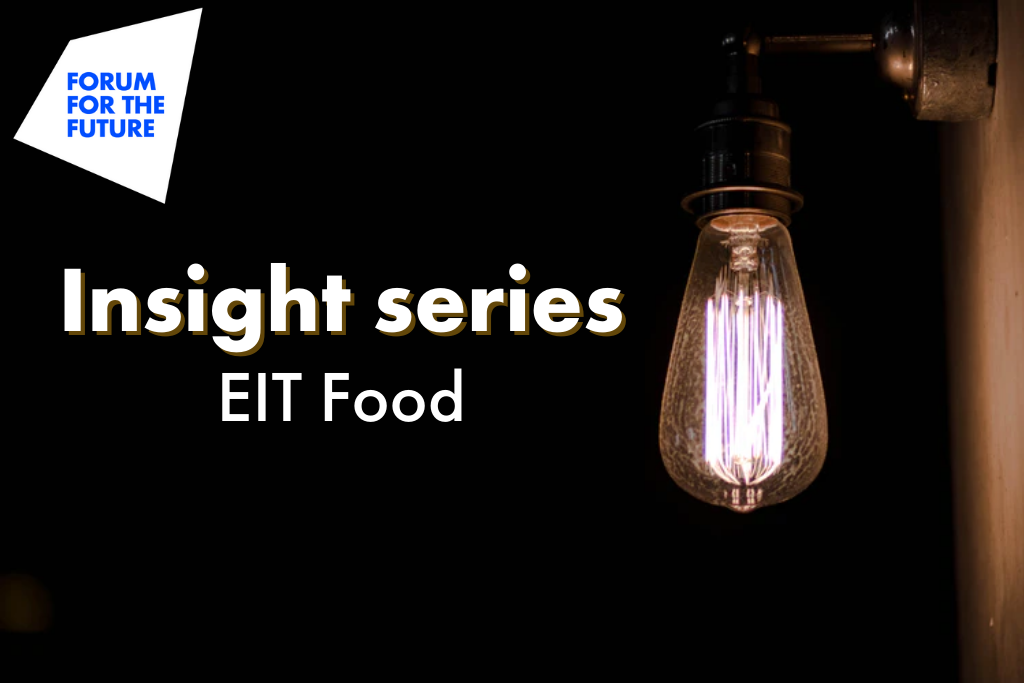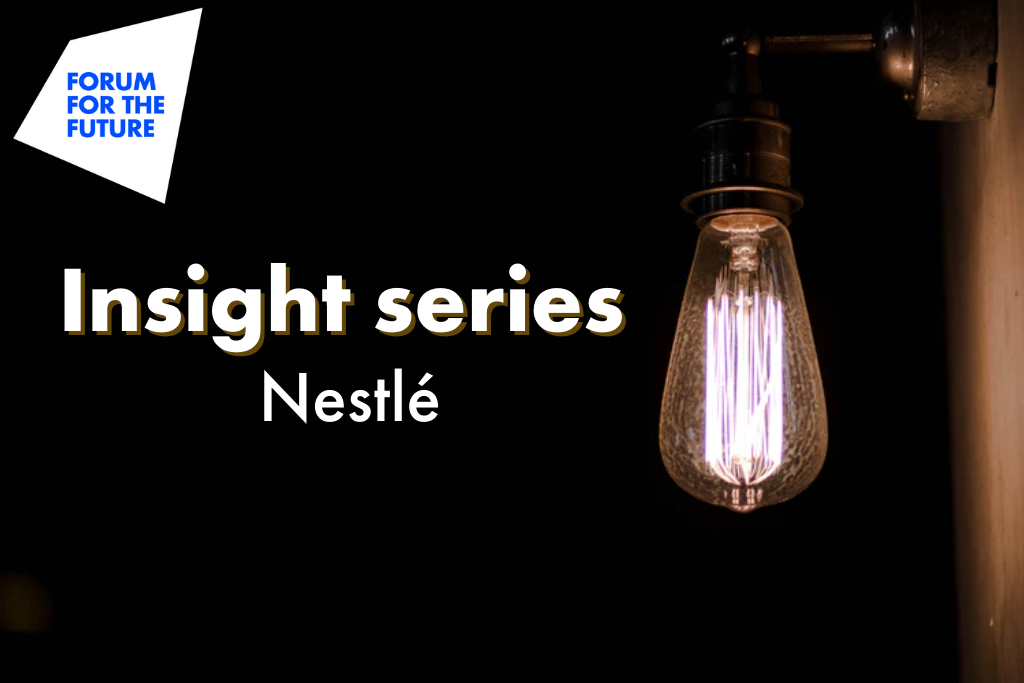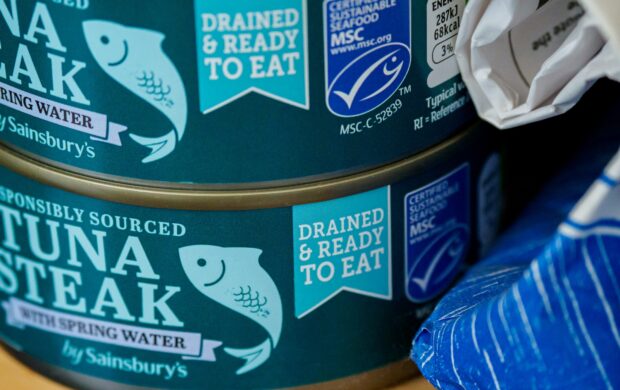Tessa Tricks & Mark Breen share their insights from Hubbub, an award-winning environmental organisation running creative campaigns for everyday action.

In what ways is your organisation involved in plant-based innovation?
Hubbub’s food campaigns focus on increasing access to healthy, sustainable and nutritious diets – recognising that a incorporating more plant-based foods into what we eat is a really important part of this shift. We partner with charities, NGOs and businesses to develop innovative behaviour change campaigns, focusing on areas with the highest potential for impact. For example, Meat Your Match encouraged male gym enthusiasts to halve the meat they ate.
How do you currently identify and develop innovations, especially those related to plant-based diets?
Every campaign we run starts with talking to people. Where do they shop? What do they like to eat? How is food part of their lives? This is key for meeting people where they are at, as human beings, and making sure we design something that’s going to work for their level of knowledge, desire to make changes and different interests.
The second key ingredient is using behavioural insights to develop compelling campaigns that everyone can be part of. The recipe for success is clear – it has to be easy, sociable, timely, and most importantly, fun! We focus on encouraging people to try something new by providing tips and inspiration. Once someone has had the initial spark to experiment with what they eat, then we can raise awareness and drive action.Finally, we find that for an intervention to be successful in the long-run, it has to be embedded in community relationships. What might look like a digital platform for reducing food waste, is just as importantly a place for people to exchange ideas and provide peer-to-peer support.
What questions or hopes do you have around how innovation approaches may need to change to support a just transition to healthy, sustainable diets?
It feels like current efforts around plant-based diets are often focussed on product innovation. That is important as we need to make eating plant-based easier for people. But if we are serious about equitable access and shifting behaviour, that needs to be packaged as part of a wider set of interventions that address everything from physical access, to skills and cultural preferences. For example, people are often intrigued by our Community Fridges as a place to get food that would otherwise be wasted. Yet once they have put their foot in the door, they are drawn into a dynamic food hub, where food is shared, grown, cooked and eaten. Developing these kinds of holistic approaches to plant-based innovation might require new kinds of partnerships across businesses and community-led approaches.
We also need to see innovation focussed where it is needed most. How can we – together with local governments – innovate within schools, education settings, hospitals etc., where there are unique opportunities to address inequalities in what we eat? And we mustn’t forget that there is also just as much work to be done at the production end of the chain in increasing the diversity of ingredients grown in order to unlock new opportunities for affordable, culturally appropriate food, alongside many other benefits.
Finally, to develop credible approaches to a ‘just transition’ we also have to ask some of the bigger questions about why people can’t afford good food in our society. One of the most important ways we can all reduce food insecurity is by making sure our colleagues, staff and suppliers are paid a living income. Innovation strategies need to be connected to a wider strategy around how we are building fairness into the core of our organisations’ business models.


Read more from our insights series below:

To learn more about Forum for the Future’s Action Sprint exploring the role of plant-based food in supporting a just transition to healthy sustainable diets, follow the Live Research page here.

















Join discussion